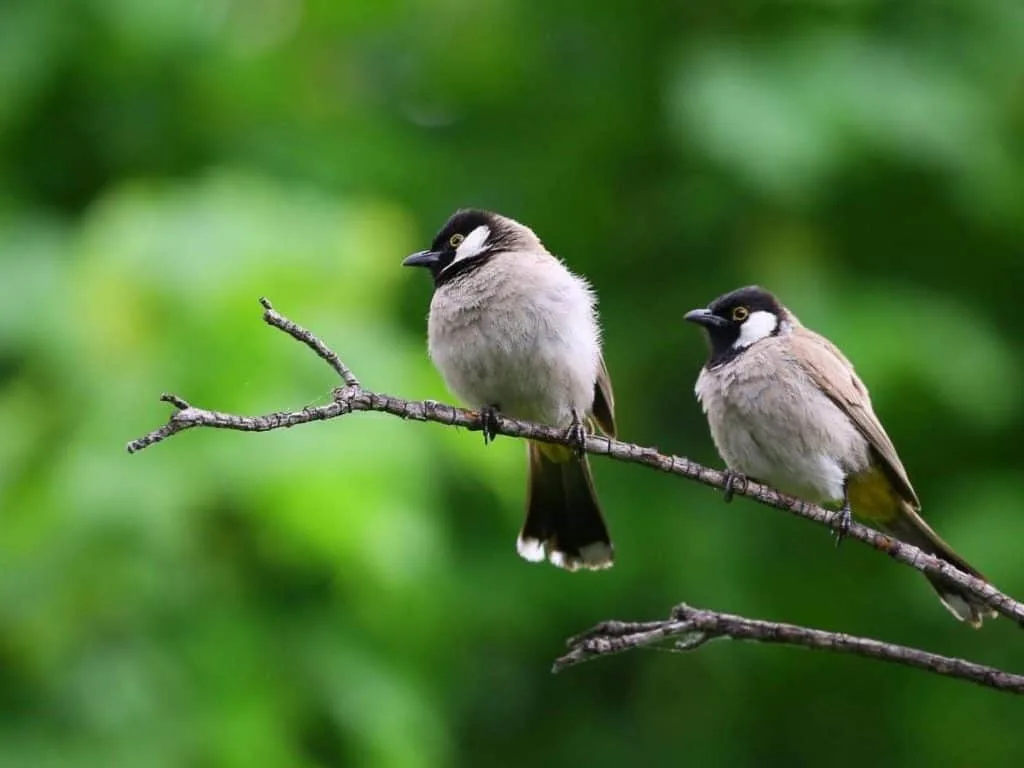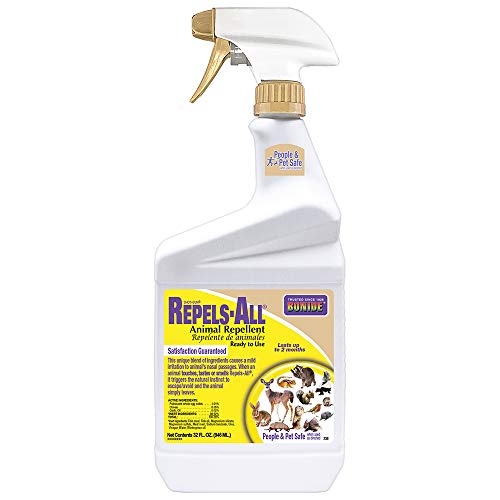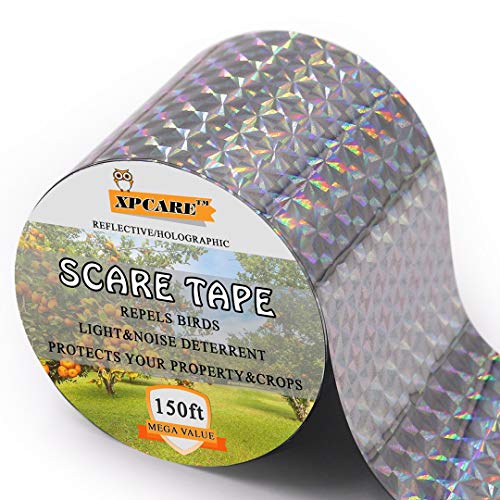Mothballs are used to keep away moths, larvae, and eggs from clothes. It’s a very effective item for pest control. But do mothballs keep away pest birds? Let’s find out the answer and some related facts.
Will mothballs keep birds away?
Mothballs are not so effective as bird repellent. Although it may repel some sensitive bird species. Mothballs are effective to control insects. A common misconception about mothballs is, it repels rats, mice, and birds. It has harmful effects, but it does not repel them.
Table of Contents

First, let’s learn how mothballs work. Mothballs are made of naphthalene. It undergoes sublimation and forms gas skipping the initial liquid stage. Mothballs become smaller over time. That happens because they are very weakly bonded with each other. So it forms gas directly.
The naphthalene gas helps to repel the pests. The gas is very effective at repelling bugs and insects. Bugs respire using small holes in their body.
Naphthalene gas enters their body, makes them suffocate, and keeps them away. But animals’ and birds’ respiratory systems work in different ways.
Mothballs work best in a close environment like your suitcase, language, drawer, etc. But in an open place, the gas evaporates in the atmosphere and leaves no mark. Birds may feel the smell, but for most birds, the smell is not irritating to them. Birds will never eat them.
Inhaling mothballs is harmful to birds but they don’t know it. It has a toxic effect on cats, dogs, rats, squirrels, and even humans.
There are many other effective ways to repel birds from your home. But mothballs are not one of them. By using it, you may repel some species of birds and make some birds sick but it’s far away from fixing the problem.
Keeping mothballs in an open place can be harmful to humans. It can be life-threatening if a child or pet swallows it. Inhaling mothballs for a long time can cause nausea, abdominal pain, headache, or even cancer.
Moreover, mothballs fully evaporate in 3-6 months at room temperature. But it will not last for long in sunlight.
Using mothballs to save the garden from birds is probably the worst idea. Mothballs are harmful to soil fertility and groundwater. It may terminate the plants you are trying to save.
Bugs and insects have a great role in garden ecology and pollination. Mothballs will repel beneficial insects like bees.
But if you have no other way to repel birds, you can try mothballs. But make sure it is away from children, pets, plants, and soil.
There is not much research on mothballs’ effect on birds. Here we are listing probable mothballs’ effects on some bird species.
Parrots:
Mothballs can make parrots sick but they may not repel them from your house or backyard.
Parakeets:
Parakeets are sensitive to strong smells and mothballs may repel them from targeted areas.
Cockatiels:
Strong smells and polluted air creates discomfort for cockatiels. So, keep your pet cockatiels away from mothballs.
Finches:
Finches can distinguish many smells and they are also capable of distinguishing each other by smell. But no evidence says mothballs make them go away.
Lovebirds:
Most love birds will not care about the smell of nepheline. But they have health risks by mothballs especially the pet lovebirds.
Doves:
Doves and pigeons are known as pest birds in urban areas. But unfortunately, mothballs are not effective against pigeons and doves.
Parrotlets:
Parrotlets are one of the smallest species of parrots but they are hard to pet because they need extra care. Parrotlets may avoid a place with mothballs.
Cockatoos:
Cockatoos are very smart and intelligent bird species. They also can avoid a place with mothballs.
Conures:
Conures are medium-small size parrots. They may not avoid a place with mothballs.
Pionus Parrots:
Pionus parrots are medium-sized species of parrots. Mothballs may not repel them effectively.
African Greys:
African Greys are highly sensitive birds and mothballs may work well to repel them.
Robins:
Robins are very friendly to people and can even remember people’s faces. Mothballs may not repel robins but it’s very harmful to them.
Do mothballs hurt wild birds?
Yes, mothballs hurt wild birds and wildlife. Mothballs were not intended to use outside. Birds will not eat mothballs but if they do, it can cause life loss.
Mothballs do not repel birds effectively. If birds inhale mothballs, it can make them sick and even cause life loss to some sensitive birds.
Mothballs will repel insects from an area, and that can cause food shortages for some birds. Inhaling mothball can cause loss of appetite, lethargy, breathing difficulties, or even organ failure.
So, mothballs should not be used irresponsibly and always look after the pets and children when using mothballs. The effects of mothballs have a very negative effect on nature. It can damage the ecological balance if used in soil.
It reduces the microbial diversity of soil as a result soil fertility is also reduced.
Birds are very disturbing sometimes, but they are important members of our ecosystem. So, we should try to repel them without dealing with any harm.
What is a natural bird repellent?
Cats! Cat is a natural predator of birds. A pet cat can repel birds from your house effectively.
Well, not those fat cats that love to sleep all day. An active cat who loves to chase mice and birds will be a good choice as a bird repeller. According to American Bird Conservancy, cats are the number one threat for birds in Canada and America.
Hursh sound and moving objects are also good options as a bird repellents. Buy a bird repellent tape or play a bird repellant sound with your soundbox. You can find bird repellent sounds on youtube.
There are many more methods to repel birds effectively from your house. We will discuss them in the next sections.
What smell do birds dislike?
There are some items you can use as bird repellent. Many of them can be found in your kitchen and some can be brought online. Here are the top smells birds dislike.
Essential oils:
Essential oils are one of the most useful items to repel birds. Lemon oil, paper mint oil, and other essential oils with strong smells are effective to repel birds.
The strong smell of essential oil makes the wild birds defensive and go away. The best way to use essential oils –
Mix it ¼ cup of water, ¼ cup of water, and 7 drops of two different essential oil. Shake the solution and spray to repel the birds. Or soak a few cotton balls and place them in different places in your yard.
Garlic:
Garlic is also useful to repel birds. Just cut some garlic in pieces and place it in different places in your yard to get rid of wild birds. Garlic oil spray with water also works well.
Cayenne paper:
Birds and small animals can’t tolerate cayenne paper. The strong smell of cayenne paper hits their smelling sense very hard.
Chilli paper mix:
Chilli paper spray with water and vinegar will repel birds effectively.
Mix a half-gallon of water, one-quarter cup of apple cider vinegar, and 24 chili paper. Spraying the mixture in good spots will help to keep away the birds.
Professional bird repellant:
professional bird repellant works very well to keep the birds away. Those repellents are offensive to birds as they affect multiple senses of birds.
Professional bird repellants are expensive but they last longer and have better effects than natural ones. Although the environmental effect is still unknown.

How to keep birds away from the house?
Let’s talk about some steps you can take to repel birds from your backyard.
Use predator dummies:
Owls, hawks, sneaks are natural predators of birds. Birds can be repelled by setting predictor dummies or dolls in different parts of your house. Make sure to keep them in noticeable places.
Bird repellant tape:
you can find bird repellant tape from the market or online which is effective to repel birds. The shiny tape moves and reflects sunlight which scares off the birds. The tapes are pretty cheap too.

Sonic bird repellant:
There is one kind of machine that releases a low-frequency sound that matches the sound of predators. The sound effectively repels the birds.
The ultrasonic bird repellents are very expensive and only used in school collages to repel birds.
However, you can make your sonic bird repellant using your large soundbox. Place your soundbox in the direction where birds are and play a bird repellent noise from YouTube.
The bird repellant sound may irritate small animals and pets.

Final thoughts
Mothballs may work sometimes but considering their effectiveness and harmful characteristics it’s better not to use them as bird repellant. Mothballs can cause serious health complications if inhaled. Natural methods that scare off birds are the best for you, birds, and the environment.
